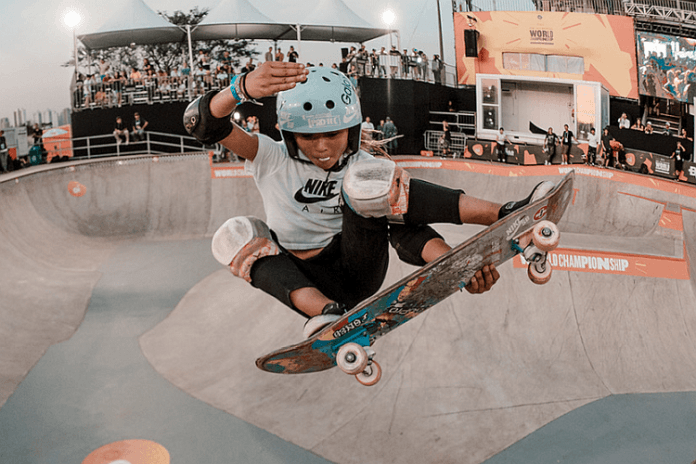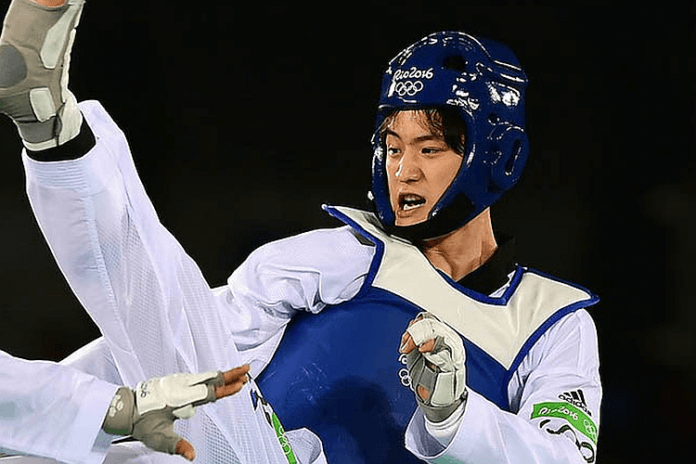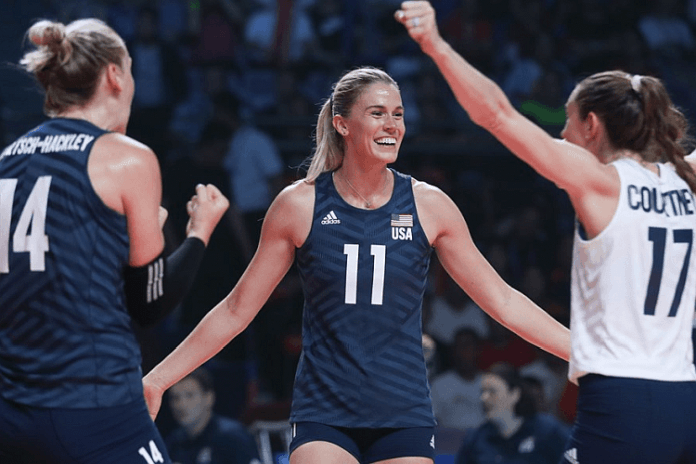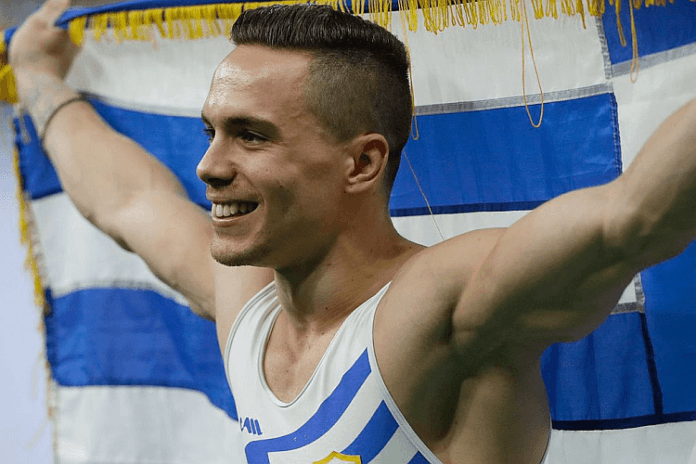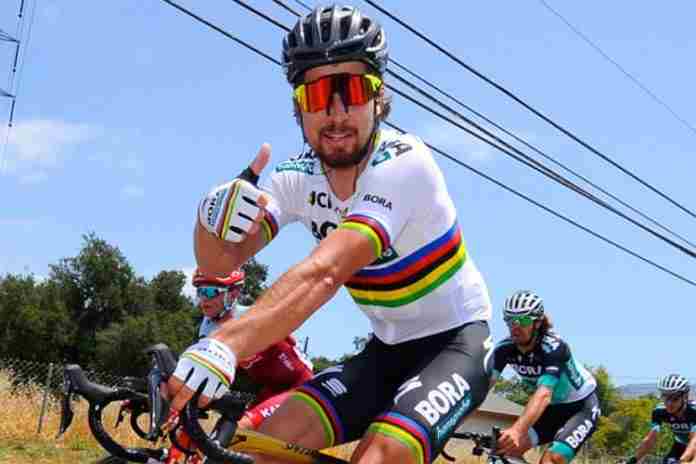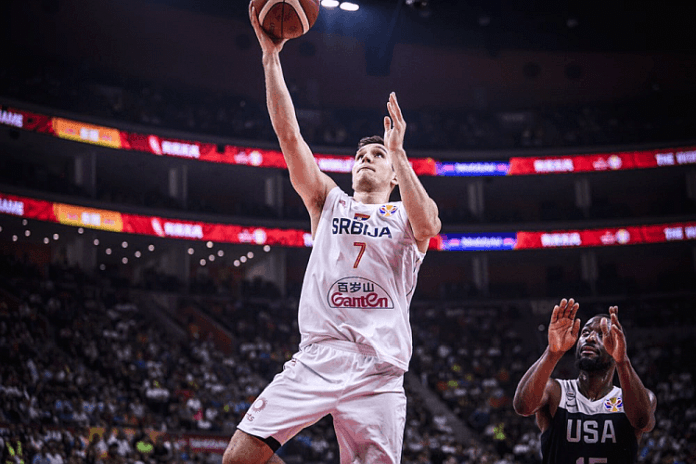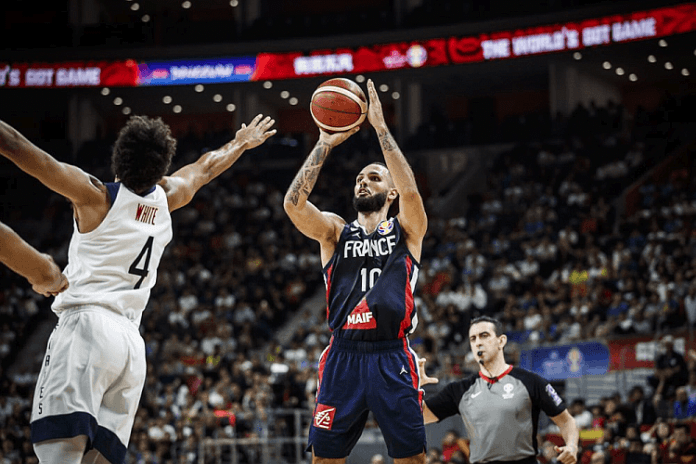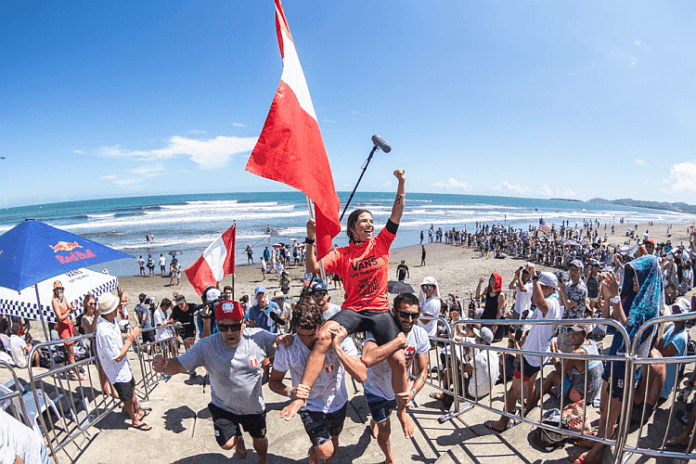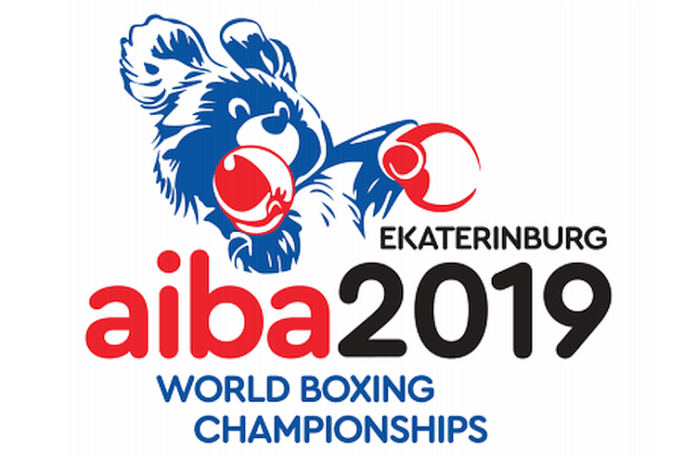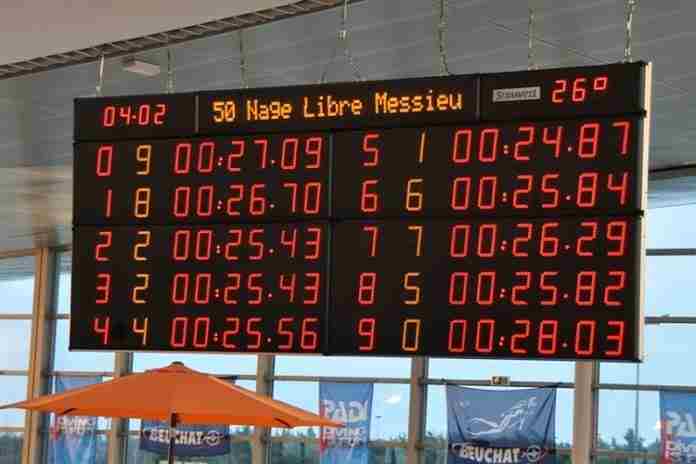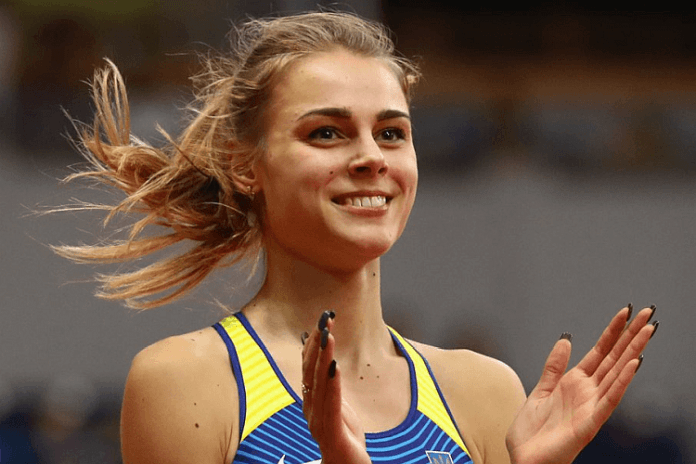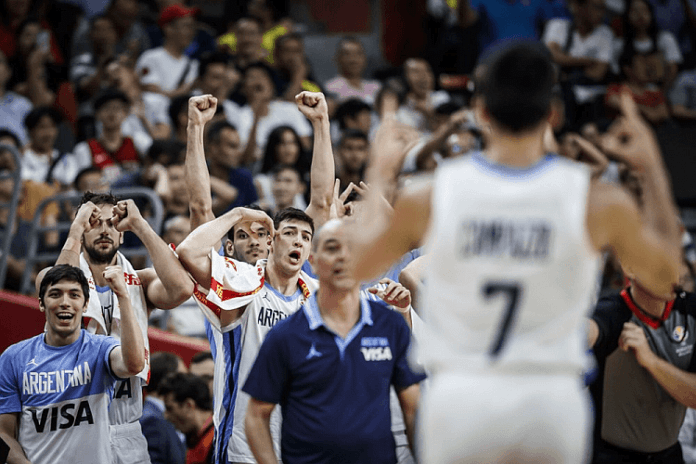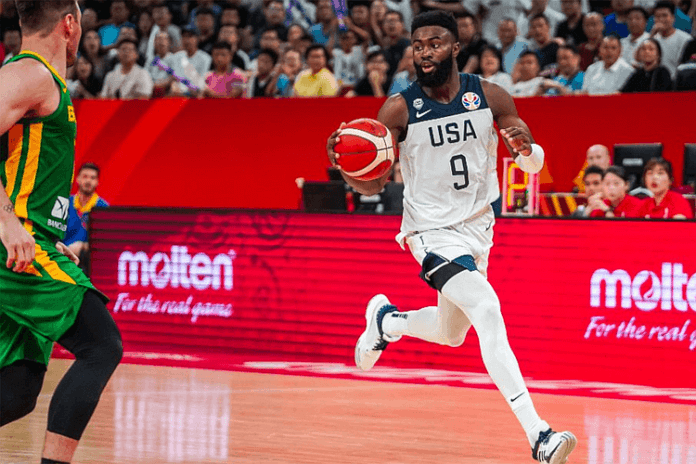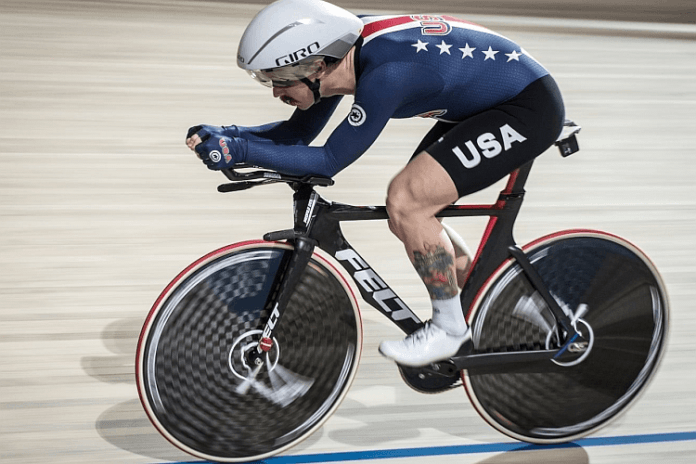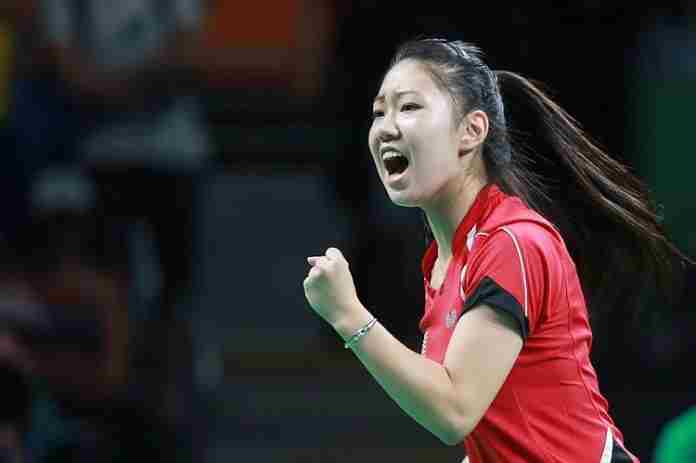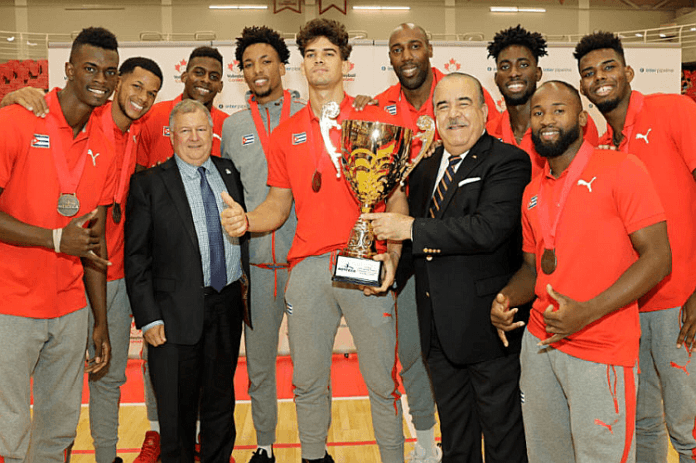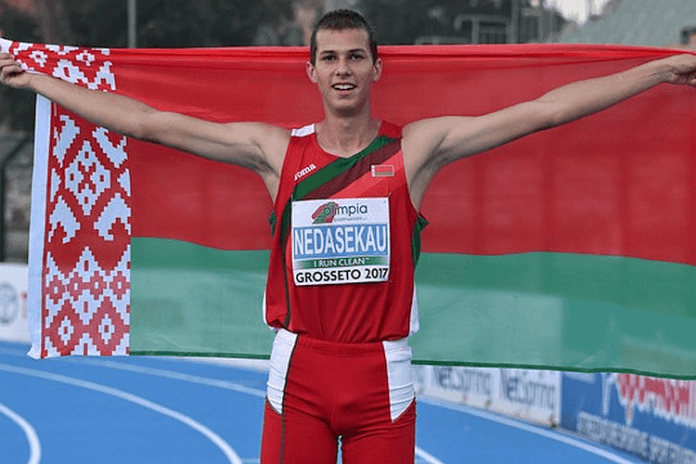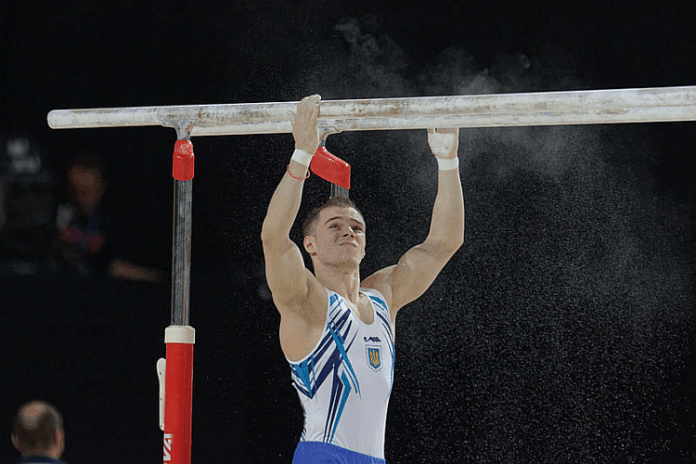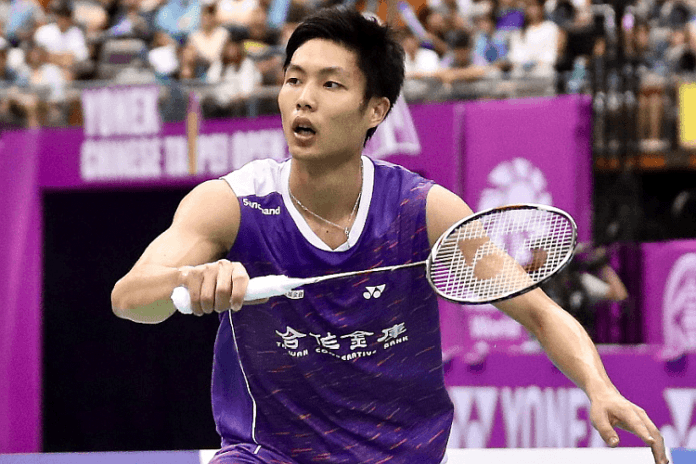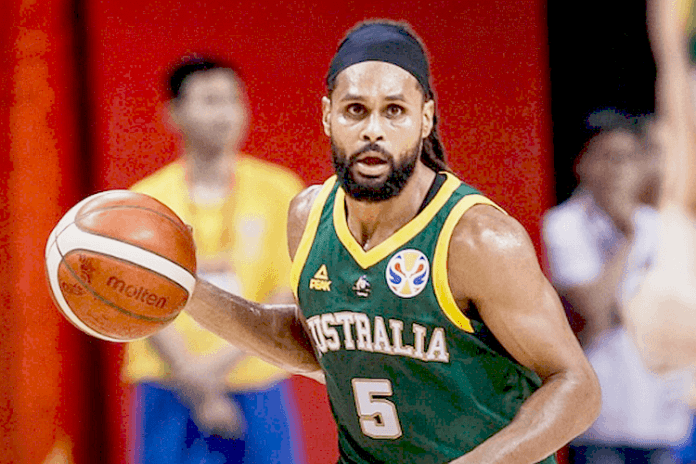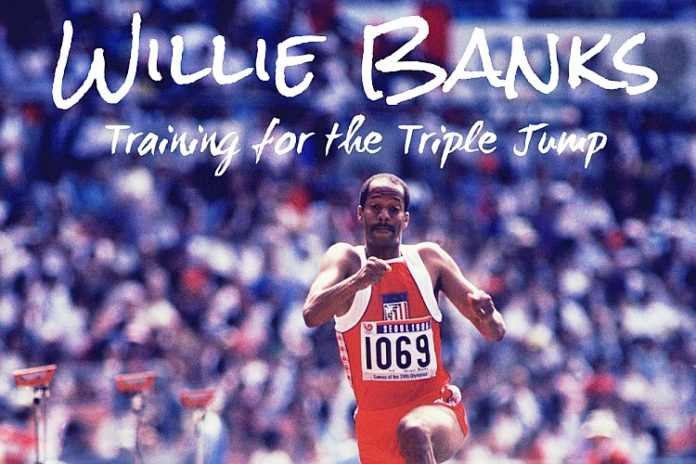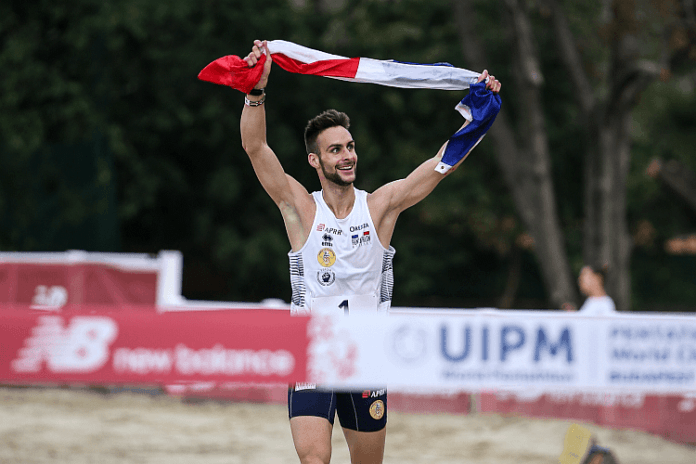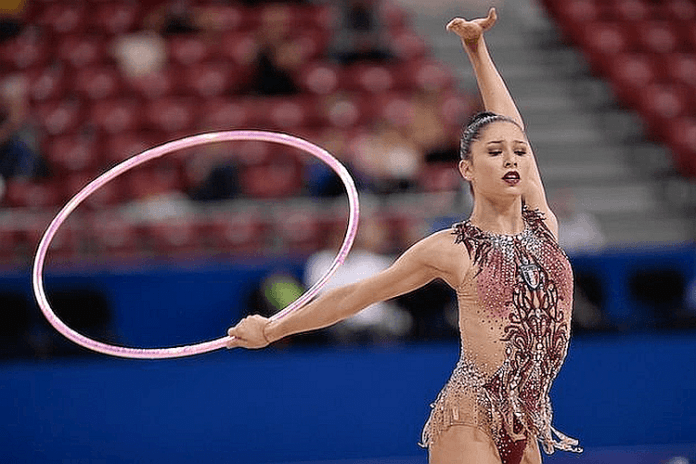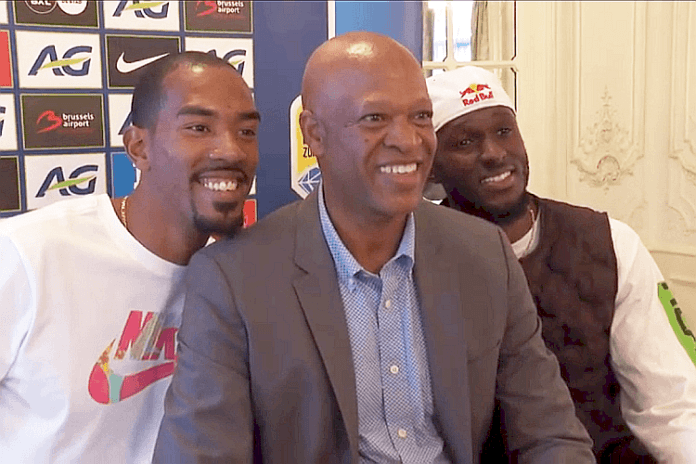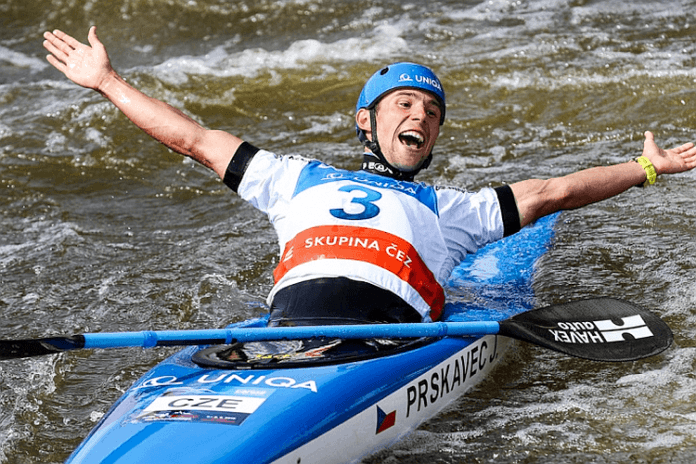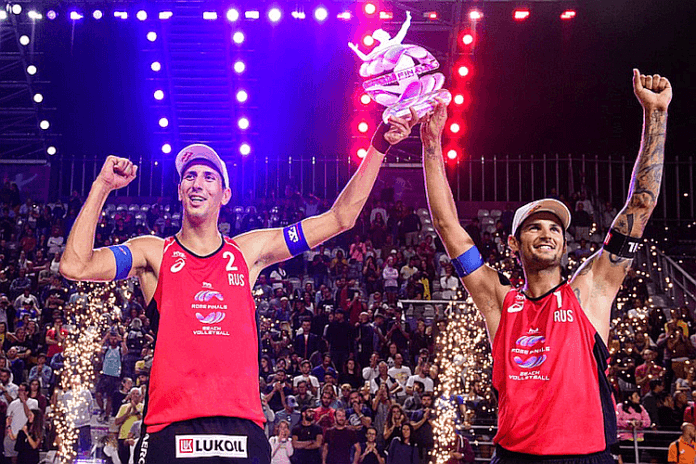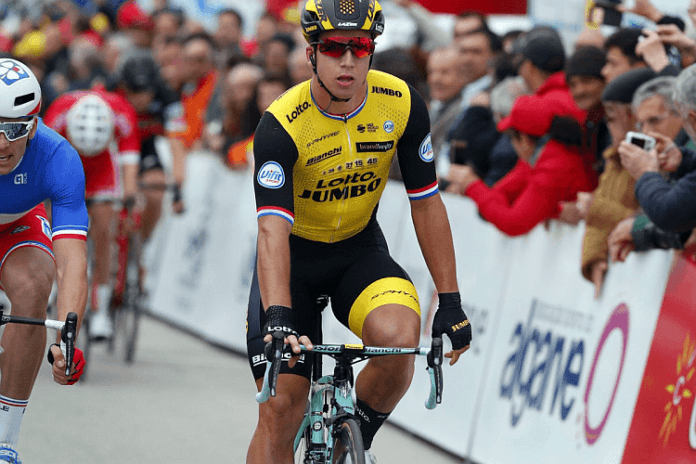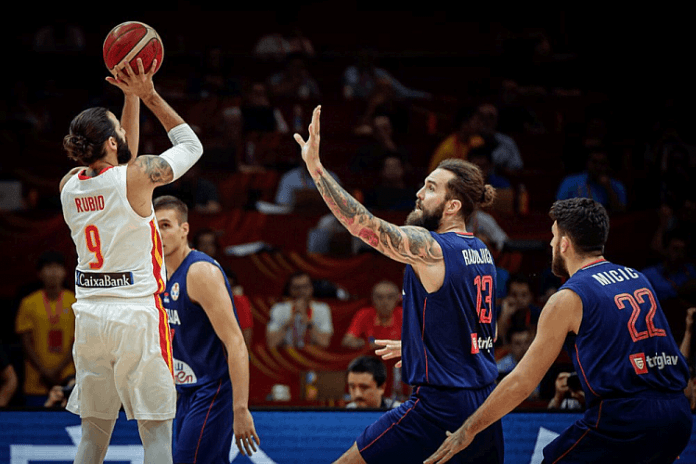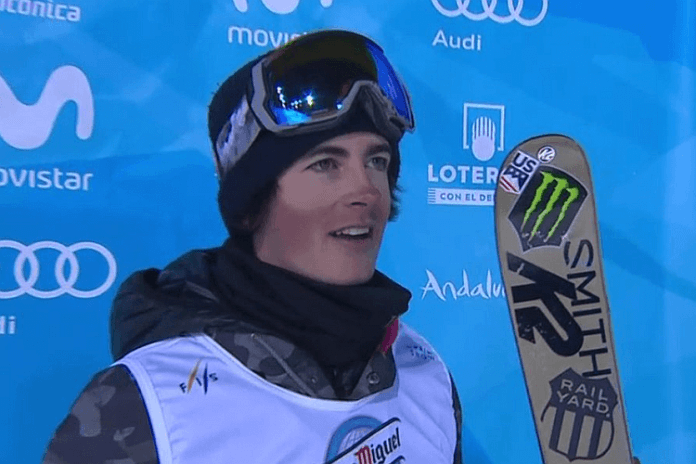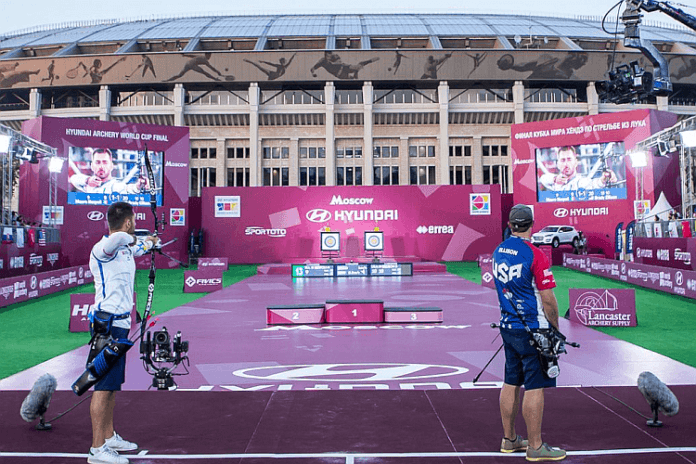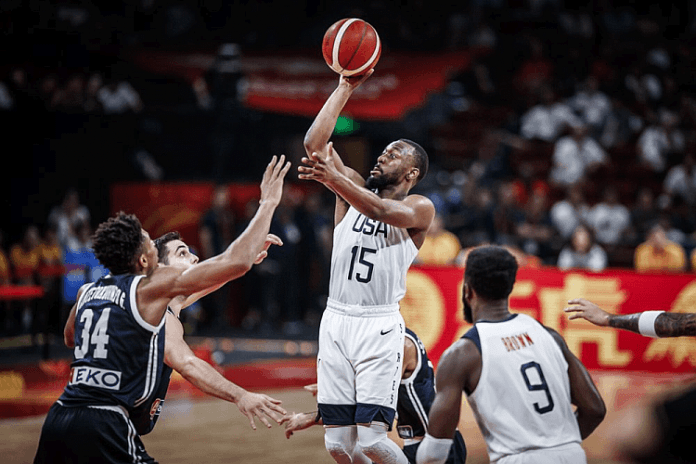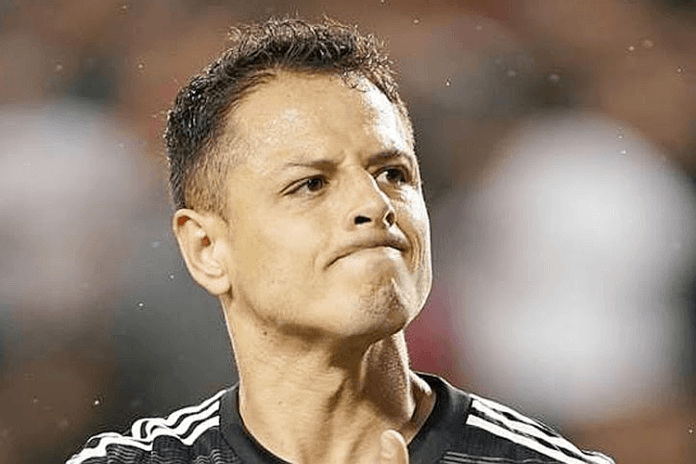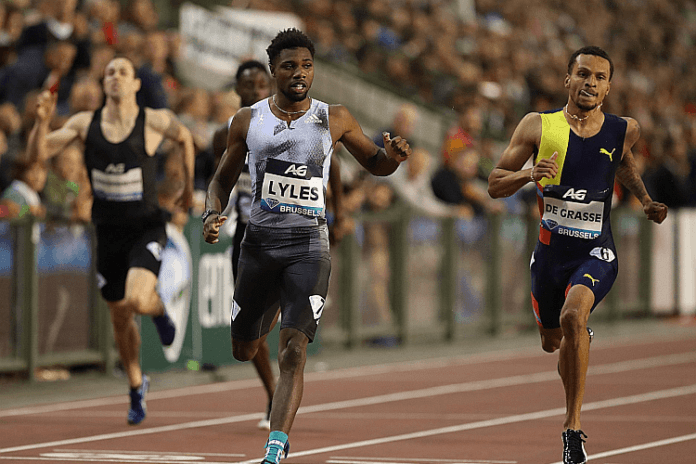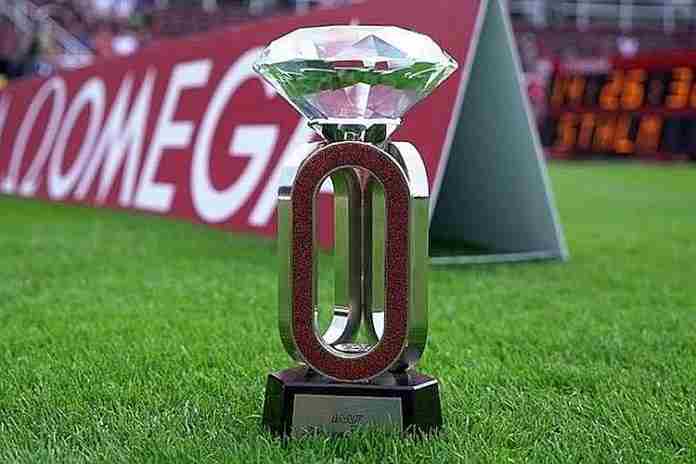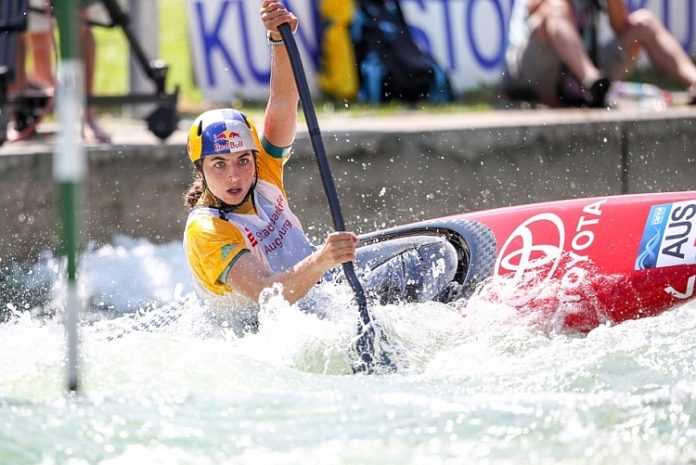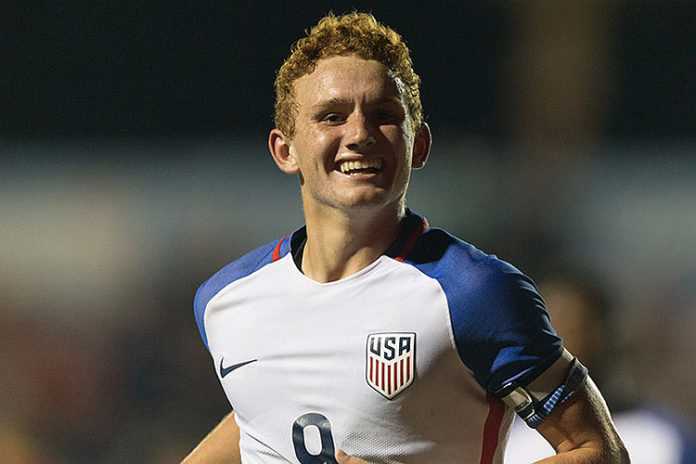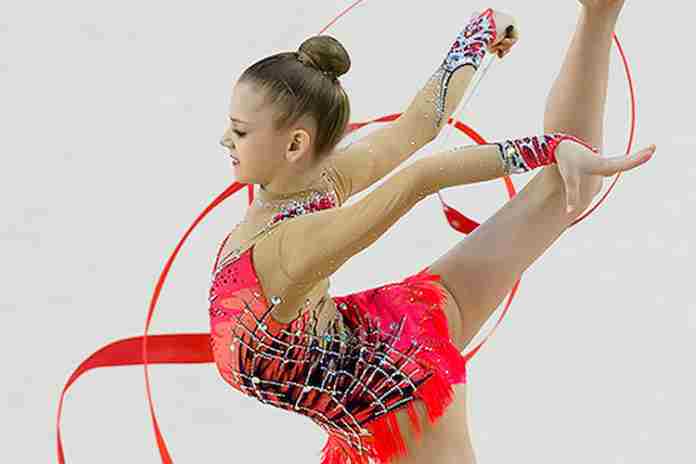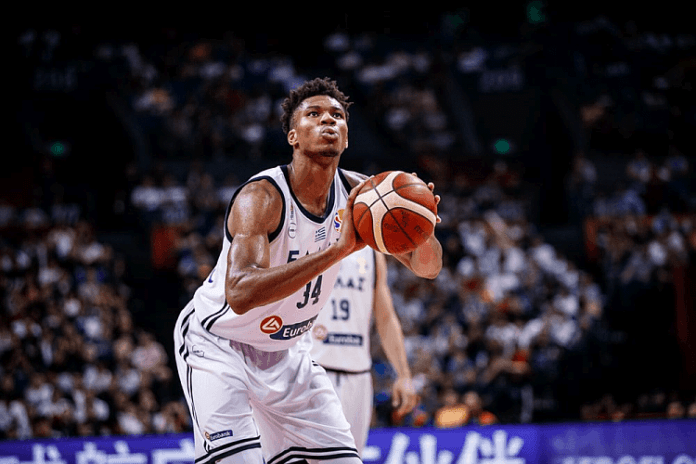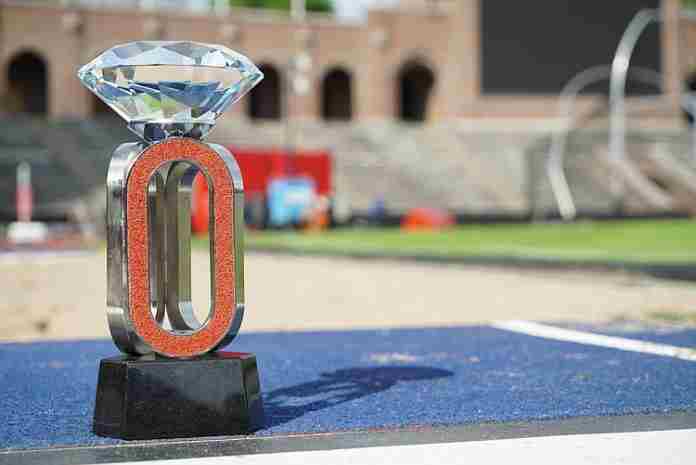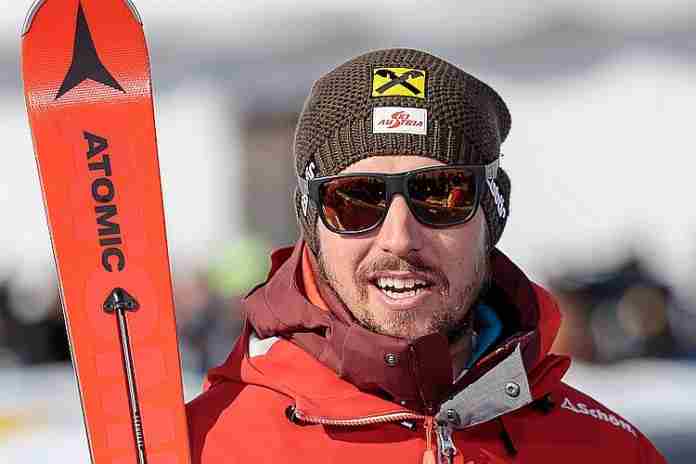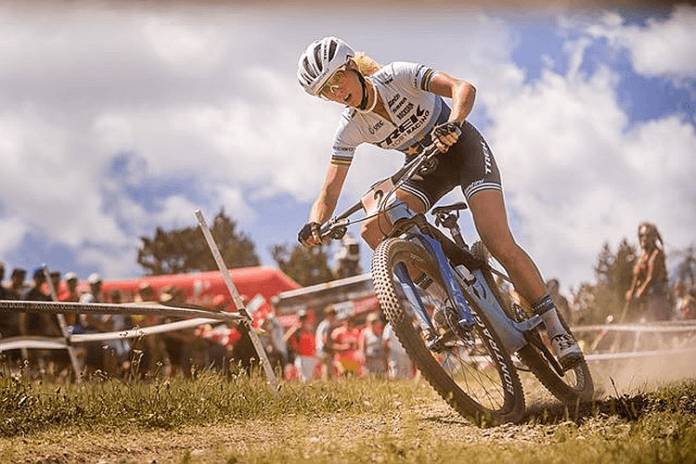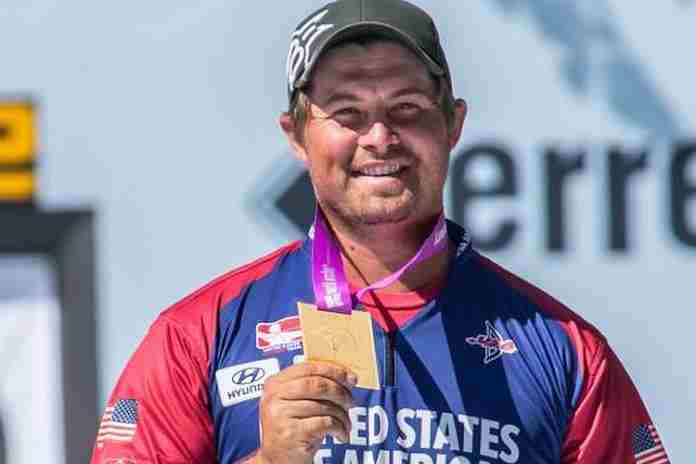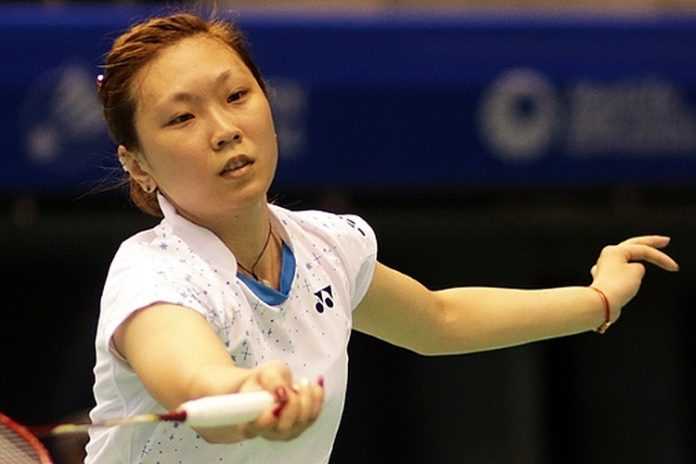It was a big weekend in cycling, including the Cross Country World Cup title for American Kate Courtney in Mountain Bike, but the decisive break may have been made in La Vuelta a Espana with six stages left to go.
Where the race had been seesawing, with new leaders on six straight days from stages 5-10, Slovenia’s Primoz Roglic took the lead – as expected – with a brilliant Individual Time Trial in stage 10. But he hasn’t let go since.
His brilliant Time Trial gave him a 1:52 lead as the race headed back into the mountains. While he stayed with the other contenders as the hilly stages 11 and 12 played out, he was ready for the brutal 13th stage, with seven major climbs and finishing with a ridiculous ride up to Los Machucos. Roglic and countryman Tadej Pogacar were equal to the challenge and Pogacar won the stage with Roglic close, but the other contenders fell back.
Roglic’s lead went from 1:52 to 2:25 over Spain’s Alejandro Valverde, 3:01 over Pogacar and 3:18 over Colombia’s Miguel Angel Lopez. Stage 14 was reserved for the sprinters, but Sunday’s 15th stage was another climbing test with four major ascents and another uphill finish. Roglic and Valverde finished together in eighth and ninth – American Sepp Kuss got his first World Tour win – but Roglic put more time ahead of all the other contenders. After 15 of 21 stages:
1. 58:10:32 ~ Primoz Roglic (SLO)
2. +2:25 ~ Alejandro Valverde (ESP)
3. +3:42 ~ Tadej Pogacar (SLO)
4. +3:59 ~ Miguel Angel Lopez (COL)
5. +5:09 ~ Nairo Quintana (COL)
The race is far from over, with more misery coming in climbing stages on Monday, Thursday and Saturday. But Roglic, who was favored to win the Giro d’Italia, but could not finish, is showing the climbing ability and speed that could well turn him into a Grand Tour winner at age 29.
¶
In the Boels Ladies Tour in the Netherlands, stages 1, 2, 3 and 5 all ended in mass sprints, or close to it. It turned out that the fourth stage, a hilly 135.6 km ride from Arnhem to Nijmegen was the key day of the race and it was Luxembourg’s Christine Majerus who took advantage of it.
She was part of a three-rider breakaway with German Franziska Koch and Dutch rider Riejanne Markus, with Koch winning the stage just ahead of Majerus, with Markus two seconds behind. But the rest of the field finished 44 seconds or more behind the leaders, including a crash that felled Dutch star Kirsten Wild, plus sudden rains and heavy winds.
The first three spots in the stage appeared decided with 11 km to go, as they had dropped all challengers. It looked like Majerus would win, but was passed by Koch right before the line.
But with Majerus, 32, trailing leader Lisa Klein (GER) by just 23 seconds coming into the stage, her runner-up performance put her in front and she kept up on Sunday to seal her first Women’s World Tour multi-stage race win.
Anniemiek van Vleuten (NED) finished sixth and passed countrywoman Marianne Vos for the seasonal World Tour lead with 1,472.67 points to 1,467.0 for Vos. Next week’s Ceratizit Marrid Challenge by La Vuelta in Spain could be the decider.
¶
In Snowshoe, West Virginia, the final stage of the UCI Mountain Bike World Cup was completed and it was a good day for the home team. Kate Courtney, the 2018 World Champion, had started the season winning three of the first four races and looked unbeatable, but then faded. Coming into the final race, Swiss Jolanda Neff had the points lead and was looking for her fourth seasonal title.
But Courtney finished third in the Cross Country Short race while Neff was 16th, then came back with a fifth-place finish in the Cross Country Olympic race (with Neff in 11th) to pile up 220 points to 117 for Neff on the weekend. That was enough to make up the 73-point deficit and give Courtney her first World Cup title with 1,772 points to 1,742 for Neff. France’s Pauline Ferrand Prevot finished third with 1,575.
“I went out really hard knowing I wanted to make a statement, if I wanted to put some distance between me and Jolanda and that took its toll,” Courtney said. “The middle of the race was about collecting myself and finding the will to fight for ever single spot and every single point.”
She’s the first American winner of the XCO title since 2002.
The men’s World Cup racing led to a familiar sight: Swiss Nino Schurter won again for his ninth career seasonal title and sixth in a row. He won the Short race and was second in the XCO race to teammate Lars Forster, who finished five seconds up in 1:26:09.
Schurter won the seasonal crown with 1,995 points, well ahead of runner-up Mathieu van der Poel (NED), who skipped Snowshoe to concentrate on the upcoming World Road Race Championships. Summaries from the weekend:
UCI World Tour/La Vuelta a Espana
Spain ~ 24 August-15 September 2019
(Full results here)
Stage 1 (13.4 km Team Time Trial): 1. Astana (KAZ), 14:51; 2. Deceuninck-Quick Step (BEL), 14.53; 3. Team Sunweb (GER), 14:56; 4. EF Education First (USA), 14:58; 5. Bora-hansgrohe (GER), 15:04.
Stage 2 (199.6 km): 1. Nairo Quintana (COL), 5:11:17; 2. Nicholas Roche (IRL), 5:11:22; 3. Primoz Roglic (SLO), 5:11:22; 4. Rigoberto Uran (COL), 5:11:22; 5. Fabio Aru (ITA), 5:11:22.
Stage 3 (188.0 km): 1. Sam Bennett (IRL), 4:25:02; 2. Edward Theuns (BEL), 4:25:02; 3. Luka Mezgec (SLO), 4:25:02; 4. Jon Aberasturi (ESP), 4:25:02; 5. Phil Bauhaus (GER), 4:25:02.
Stage 4 (175.5 km): 1. Fabio Jakobsen (NED), 4:04:16; 2. Bennett (IRL), 4:04;16; 3. Fernando Gaviria (COL), 4:04:16; 4. Mezgec (SLO), 4:04:16; 5. Marc Sarreau (FRA), 4:04:16.
Stage 5 (170.7 km): 1. Jose Madrazo (ESP), 4:58:31; 2. Jetse Bol (NED), 4:58:41; 3. Jose Herrada (ESP), 4:58:53; 4. Miguel Angel Lopez (COL), 4:59:18; 5. Alejandro Valverde (ESP), 4:59:30.
Stage 6 (198.9 km): 1. Jesus Herrada (ESP), 4:43:55; 2. Dylan Teuns (BEL), 4:44:02; 3. Dorian Godon (FRA), 4:44:16; 4. Robert Gesink (NED), 4:44:16; 5. Bruno Armirail (FRA), 4:44:32.
Stage 7 (183.2 km): 1. Alejandro Valverde (ESP), 4:34:11; 2. Roglic (SLO), 4:34:11; 3. Lopez (COL), 4:34:17; 4. Quintana (COL), 4:34:17; 5. Rafal Majka (POL), 4:34:53. Also in the top 25: 21. Sepp Kuss (USA), 4:37:39; … 25. Peter Stetina (USA), 4:39:11.
Stage 8 (166.9 km): 1. Niklas Arndt (GER), 3:50:48; 2. Alex Aranburu (ESP), 3:50:48; 3. Tosh van der Sande (BEL), 3:50:48; 4. Ruben Guerreiro (POR), 3:50:48; 5. Jonas Koch (GER), 3:50:48. Also in the top 25: 12. Stetina (USA), 3:50:48.
Stage 9 (94.4 km): 1. Tadej Pogacar (SLO), 2:58:09; 2. Quintana (COL), 2:58:32; 3. Roglic (SLO), 2:58:57; 4. Valverde (ESP), 2:58:57; 5. Marc Soler (ESP), 2:59:06. Also in the top 25: 16. Kuss (USA), 3:00:57.
Stage 10 (36.2 km (Time Trial): 1. Roglic (SLO), 47:05; 2. Patrick Bevin (AUS), 47:30; 3. Remi Cavagna (FRA), 47:32; 4. Lawson Craddock (USA), 47:53; 5. Nelson Oliveira (POR), 48:07.
Stage 11 (180.0 km): 1. Mikel Iturria (ESP), 4:36:44; 2. Jonathan Lastra (ESP), 4:36:50; 3. Craddock (USA), 4:36:50; 4. Damien Howson (AUS), 4:36:50; 5. Francois Bidard (FRA), 4:36:50. Also in the top 25: 17. Nathan Powless (USA), 4:55:19; … 21. Sepp Kuss (USA), 4:55:19.
Stage 12 (171.4 km): 1. Philippe Gilbert (BEL), 3:48:18; 2. Alex Aranburu (ESP), 3:48:21; 3. Fernando Barcelo (ESP), 3:48:21; 4. Jose Joaquin Rojas (ESP), 3:48:40; 5. Niklas Arndt (GER), 3:48:44.
Stage 13 (166.4 km): 1. Pogacar (SLO), 4:28:26; 2. Roglic (SLO), 4:28:26; 3. Pierre Latour (FRA), 4:28:53; 4. Valverde (ESP). 4:28:53; 5. Quintana (COL), 4:28:53. Also in the top 25: 21. Powless (USA), 4:31:25.
Stage 14 (188.0 km): 1. Bennett (IRL), 4:28:26; 2. Maximiliano Richeze (ARG), 4:28:26; 3. Tosh van der Sande (BEL), 4:28:26; 4. Marc Sarreau (FRA), 4:28:26; 5. Clement Venturini (FRA), 4:28:26.
Stage 15 (154.4 km): 1. Kuss (USA), 4:19:04; 2. Ruben Guerreiro (POR), 4:19:43; 3. Tao Geoghagen Hart (GBR), 4:19:44; 4. Oscar Rodiguez (ESP), 4:19:57; 5. Mark Padun (UKR), 4:20:53. Also in the top 25: 7. Craddock (USA), 4:21:15.
● 09 September ~ Stage 16 (144.4 km): Pravia to Alto de La Cubilla
● 10 September ~ Rest Day
● 11 September ~ Stage 17 (219.6 km): Aranda de Duero to Guadalajara
● 12 September ~ Stage 18 (177.5 km): Colmenar Viejo to Becerril de la Sierra
● 13 September ~ Stage 19 (165.2 km): Ávila to Toledo
● 14 September ~ Stage 20 (190.4 km): Arenas de San Pedro to Plataforma de Gredos
● 15 September ~ Stage 21 (106.6 km): Fuenlabrada to Madrid
UCI Women’s World Tour/Boels Ladies Tour
Norway ~ 3-8 September 2019
(Full results here)
Prologue (3.8 km): 1. Anniemiek van Vleuten (NED), 5:04; 2. Lisa Klein (GER), 5:10; 3. Lucinda Brand (NED), 5:11. Also in the top 10: 10. Leah Thomas (USA), 5:15.
Stage 1 (123.0 km): 1. Lorena Wiebes (NED), 2:59:02. 2. Kirsten Wild (NED), 2:59:02; 3. Letizia Paternoster (ITA), 2:59:02.
Stage 2 (113.7 km): 1. Wiebes (NED), 2:45:09; 2. Wild (NED), 2:45:09; 3. Brand (NED), 2:59:02.
Stage 3 (156.8 km): 1. Klein (GER), 4:00:53; 2. Amy Pieters (NED), 4:00:53; 3. Lizzie Deignan (GBR), 4:00:53.
Stage 4 (135.6 km): 1. Franziska Koch (GER), 3:14:33; 2. Christine Majerus (LUX), 3:14:33; 3. Riejanne Markus (NED), 3:14:35. Also in the top 10: 9. Thomas (USA), 3:15:27.
Stage 5 (154.8 km): 1. Chiara Consonni (ITA), 3:56:26; 2. Wiebes (NED), 3:56:26; 3. Brand (NED), 3:56:26. Also in the top 25: 11. Thomas (USA), 3:56:26.
Final Standings: 1. Christine Majerus (LUX), 17:01:17; 2. Lorena Wiebes (NED), +0:26; 3. Lisa Klein (GER), +0:30; 4. Lucinda Brand (NED), +0:34; 5. Amy Pieters (NED), +0:35. Also in the top 25: 10. Leah Thomas (USA), +0:54
UCI Mountain Bike World Cup
Snowshoe, West Virginia (USA) ~ 6-8 September 2019
(Full results here)
Men
Cross Country Short (9.00 km): 1. Nino Schurter (SUI), 22:01; 2. Titouan Carod (FRA), 22:03; 3. Jordan Sarrou (FRA), 22:04; 4. Ondrej Cink (CZE), 22:05; 5. Luca Braidot (ITA), 22:08.
Cross Country (34.4 km): 1. Lars Forster (SUI), 1:26:09; 2. Schurter (SUI), 1:26:14; 3. Maxime Marotte (FRA), 1:26:16; 4. Henrique Avancini (BRA), 1:26:17; 5. Stephane Tempier (FRA), 1:26:19.
Final Standings: 1. Nino Schurter (SUI), 1,995; 2. Mathieu van der Poel (NED), 1,649; 3. Henrique Avancini (BRA), 1,565; 4. Mathias Flueckiger (SUI), 1,348; 5. Jordan Sarrou (FRA), 1,097.
Downhill (2.018 km): 1. Danny Hart (GBR), 3:03:627; 2. Amaury Pierron (FRA), 3:04.283; 3. Charlie Harrison (USA), 3:04.598; 4. Loic Bruni (FRA), 3:05.775; 5. Greg Minnaar (RSA), 3:06.22. Also in the top 10: 9. Dakotah Norton (USA), 3:09.350.
Final Standings: 1. Loic Bruni (FRA), 1,462; 2. Amaury Pierron (FRA), 1,422; 3. Troy Brosnan (AUS), 1,209; 4. Danny Hart (GBR), 1,133; 5. Loris Vergier (FRA), 943.
Women
Cross Country Short (9.00 km): 1. Jenny Rissveds (SWE), 25:07; 2. Pauline Ferrand Prevot (FRA), 25:15; 3. Kate Courtney (USA), 25:18; 4. Rebecca McConnell (AUS), 25:22; 5. Anne Terpstra (NED), 25:25. Also in the top 10: 6. Chloe Woodruff (USA), 25:28; 7. Lea Davison (USA), 25:32.
Cross Country (26.8 km): 1. Ferrand Prevot (FRA), 1:17:51; 2. Terpstra (NED), 1:17:55; 3. Annie Last (GBR), 1:18:18; 4. Rebecca McConnell (AUS), 1:18:48; 5. Courtney (USA), 1:19:28. Also in the top 10: 6. Woodruff (USA), 1:20:08; … 8. Davison (USA), 1:20:32.
Final Standings: 1. Kate Courtney (USA), 1,772; 2. Jolanda Neff (SUI), 1,742; 3. Pauline Ferrand Prevot (FRA), 1,575; 4. Anne Terpstra (NED), 1,480; 5. Rebecca McConnell (AUS), 1,217. Also in the top 10: 9. Chloe Woodruff (USA), 940.
Downhill (2.018 km): 1. Marine Cabirou (FRA), 3:43.032; 2. Myriam Nicole (FRA), 3:45.027; 3. Veronika Widmann (ITA), 3:46.514; 4. Tahnee Seagrave (GBR), 3:46.742; 5. Tracey Hannah (AUS), 3:47.857
Final Standings: 1. Tracey Hannah (AUS), 1,590; 2. Marine Cabirou (FRA), 1,560; 3. Veronika Widmann (ITA), 924; 4. Nina Hoffmann (GER), 819; 5. Rachel Atherton (GBR), 730.















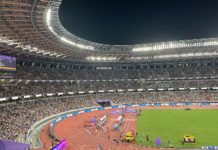



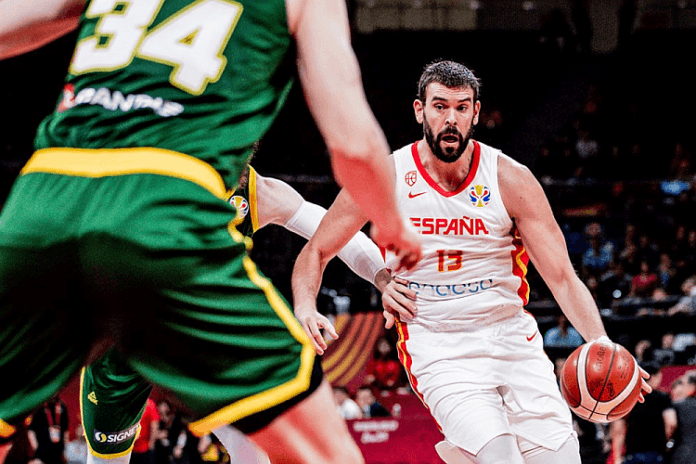
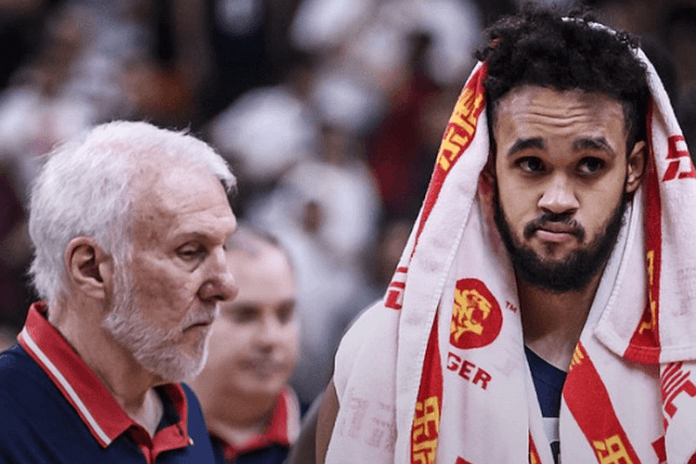

 There wasn’t a lot of attention given to the U.S. team in advance of the 2019 FIBA World Cup in China. It was a team of NBA players, and the expectation was that it would be good enough, at least win a medal, yes?
There wasn’t a lot of attention given to the U.S. team in advance of the 2019 FIBA World Cup in China. It was a team of NBA players, and the expectation was that it would be good enough, at least win a medal, yes?